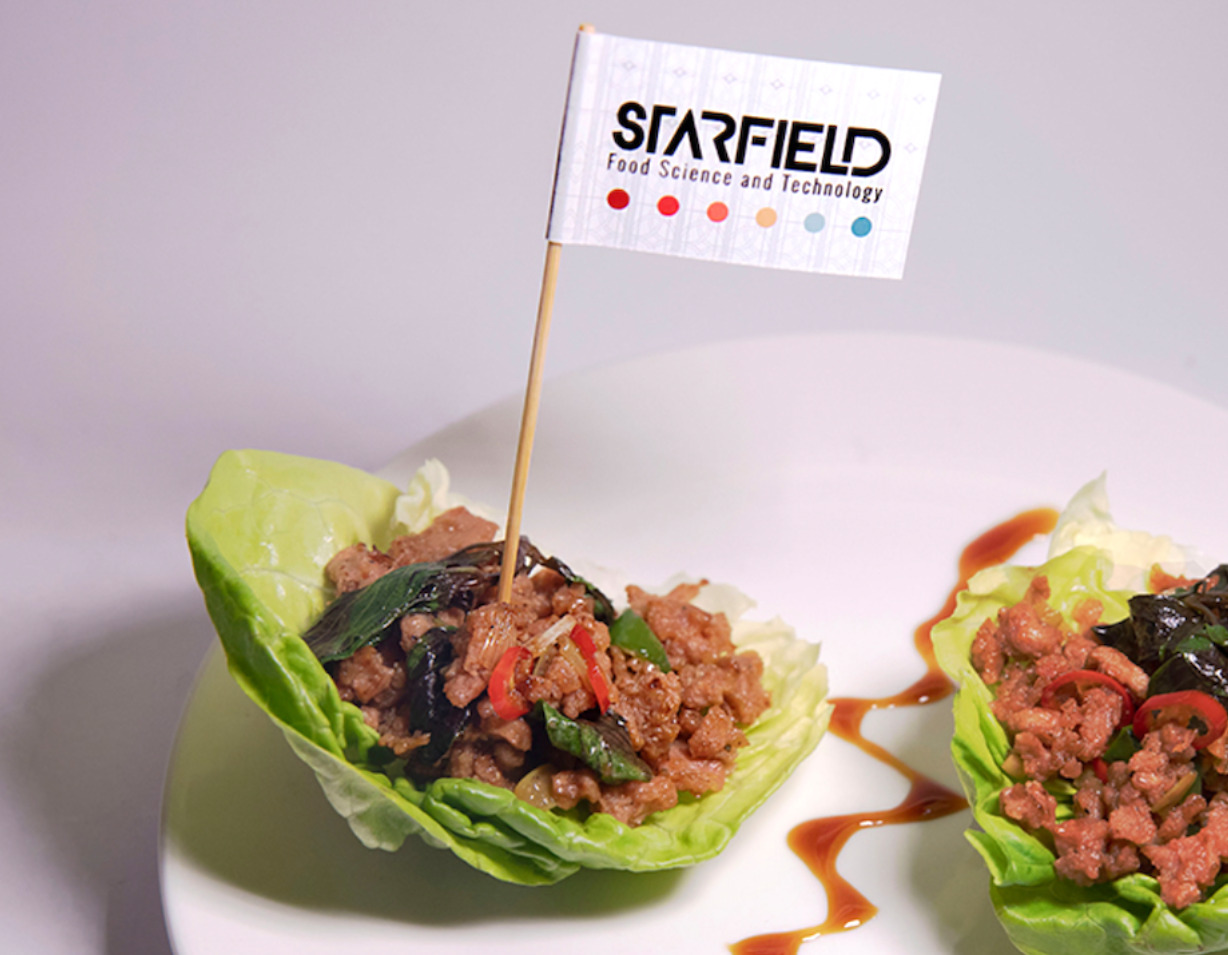Data snapshot is a regular AgFunderNews feature in which we analyze agrifoodtech market investment data provided by our parent company, AgFunder.
Click here for more research from AgFunder and sign up to our newsletters to receive alerts about new research reports.
Global investment in AgFunder’s ‘Innovative Food’ category (which is dominated by alt proteins) fell by 39% to $3.1 billion in 2022 according to AgFunder data. However, funding in the Asia-Pacific region increased by 26% to $527 million, although the deal count dropped from 82 to 63 deals. So is something different happening in APAC, or was 2022 a blip?
Speaking to AgFunderNews at the Asia-Pacific Agri-Food Innovation Summit in Singapore earlier this month, Michal Klar at APAC alt protein investor Better Bite Ventures said we probably shouldn’t read too much into the 2022 topline figure, which was bolstered by a couple of mega-deals, although he remains optimistic about the longer-term opportunities in the region.
“Growth [in APAC alt protein investment] in 2022 was driven by several larger deals. So Better Bite Ventures’ portfolio company Next Gen Foods (TiNDLE) raised the largest series A in this sector at $100 million and [Chinese alt meat co] Starfield raised $100 million in a series B. And these two deals skewed the figures a bit.
“But the longer-term trend here is an increase in Asia-Pacific’s share in the global pie of alt protein investments. So today we are at about maybe 10-12%… but there’s a huge gap between the amount of dollars coming to Asia Pacific and actual consumption trends in the region.
“About 40% of meat and more than 70% of seafood is actually made in Asia-Pacific, but only about 10% of the dollars are coming here.”
59% year-over-year drop in investment in Innovative Food category in APAC in H1 2023, vs H1 2022
A look at AgFunder’s preliminary data for the first half of 2023 suggests the dollars are not flooding in right now, however, with startups in the Innovative Food category in the Asia-Pacific region raising just $142 million in the first half of 2023 vs $347 million in the first half of 2022, a 59% year-over-year decline.
Deal count over the same period remained pretty steady, however, with 42 deals in H1 2022 and 41 deals in H1 2023, which is promising, claimed Klar.
According to AgFunder’s Asia Pacific AgriFoodTech Investment Report 2023, the top 15 rounds in AgFunder’s Innovative Food category in Asia Pacific in 2022 were all in alternative protein (see chart below).
In 2023 to date, however, six of the top 15 deals in the Innovative Food category have been in other areas such as natural sweeteners, functional ingredients, herbal ingredients, foods for special medical purposes and protein structure prediction.
Top 15 deals in Innovative Food, 2022 (Source: AgFunder)
| Company | Category | Series | Amount |
| Next Gen Foods (Singapore) | Plant-based meat & dairy | A | $100m |
| Starfield (China) | Plant-based meat | B | $100m |
| Oatside (Singapore) | Oatmilk | A | $66m |
| Vow (Australia) | Cultivated meat | A | $49m |
| Nourish Ingredients (Australia) | Precision fermentation fats | A | $29m |
| DAIZ (Japan) | Plant-based meat | C | $26m |
| Armored Fresh (Korea) | Dairy-free cheese | A | $21m |
| All G Foods (Australia) | Dairy via precision fermentation | A | $17m |
| Leaft Foods (New Zealand) | RuBisCO plant protein | A | $15m |
| Avant Meats (Hong Kong) | Cultivated seafood | A | $11m |
| CellX (China) | Cultivated meat | A | $11m |
| CellMEAT (Korea) | Cultivated seafood | A | $8m |
| Green Rebel Foods (Indonesia) | Plant-based meat & dairy | A | $7m |
| IntegriCulture (Japan) | Serum-free media, cultivated meat | A | $7m |
| Innohas (Korea) | Plant-based meat | A | $6m |
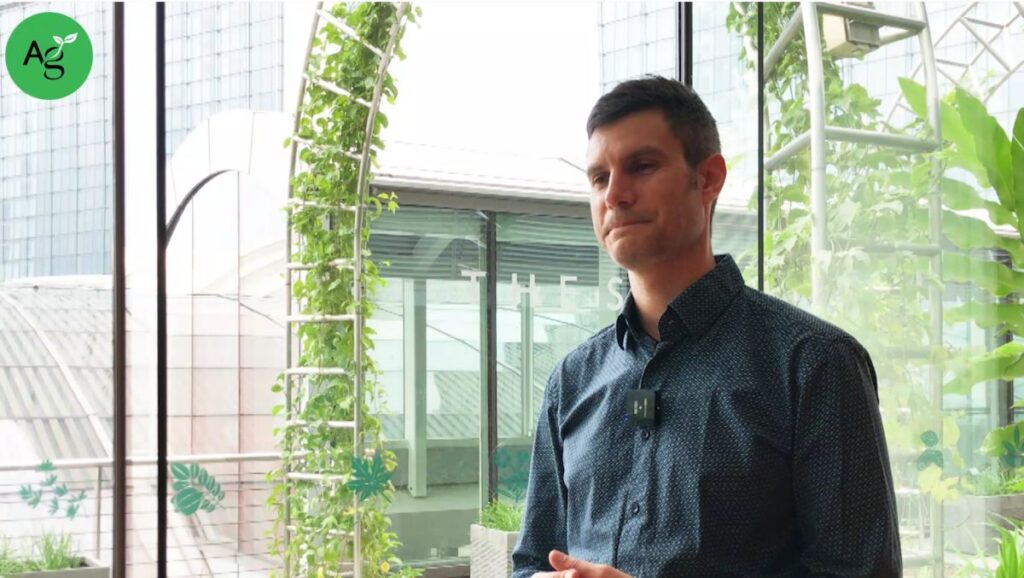
Better Bite Ventures: ‘A healthy correction’
According to Klar, “I think it’s fair to say there was some initial hype in this industry, and this is now subsiding. So we see a healthy correction in fact, where investors are looking for companies with stronger fundamentals. So I think, overall, this trend is healthy.”
However, lead times for deals have increased, which is challenging for startups, he says: “We have really seen much longer time needed to close rounds. Investors are spending more time on due diligence, but there are also fewer deals happening so investors have the luxury of spending more time with fewer startups.”
China: Uphill climb for alt meat, but more positive signs for alt dairy?

As a result, she claimed, “a lot of very mediocre products got a lot of funding and several startups have exited China since 2022. Beyond Meat only has one full time employee right now in China basically working as a sales rep selling to five-star hotels for overseas travelers [Beyond Meat, which opened a factory near Shanghai in 2021, has not responded to Ho’s comments, but recently said it planned to review its presence in China].”
She added: “The biggest enemy has always been tofu, which China invented more than 2,000 years ago, and it’s very cheap, very tasty, is soy-based and clean-label. The only problem is the shelf-life. To really solve the protein security challenge, we need a better tofu, not a cheaper [plant-based or cultivated] hamburger patty.”
However, dairy alternatives are growing quite rapidly in China, said Ho. “Not because of sustainability, but more due to diversity [of options]. Chinese people grew up having a soy grinder at home and making our own soy milk so it’s very familiar. So now it’s just about creating a lot of diverse products from coconut milk to all the different plant-based milks to really give consumers additional options.
“When it comes to density of coffee shops per capita, Shanghai is the number one in the world, so that really creates a lot of opportunities for all the different plant-based milks.”
Top 5 alt protein investments 2022, China (Source: AgFunder)
| Company | Category | Series | Amount |
| Starfield | Plant-based meat | B | $100m |
| CellX | Cellular ag | A | $11m |
| Haofood | Plant-based meat | seed | $3.5m |
| Jimi Bio | Cultivated meat | seed | $2.8m |
| Zeno Biotech | Synthetic biology/fermentation | seed | $1.4m |

Dao Foods: ‘The Chinese government on the macro level is quite supportive of new proteins’
Dao Foods International which has invested in multiple startups in the alt protein arena in China including leading domestic player Starfield, is equally enthusiastic about plant-based dairy, and more positive than Ho about plant-based meat, although cofounder Tao Zhang acknowledges the challenges facing startups in the space.
“The plant-based meat market for China as far as the next generation of products is concerned is still nascent. It still needs a lot of nurturing and ecosystem building work to take off.”
On the plus side, he says, “The Chinese government on the macro level is quite supportive of new proteins. The Chinese president made some remarks last year, which sent a good signal to the whole industry.”
Asked about Dao portfolio co Starfield, China’s best-financed plant-based meat company, he say: “They have entered close to 60,000 restaurants and retail outlets, so you can find them in chains such as 7-Eleven, KFC, Sam’s Club, Family Mart, and Luckin Coffee – China’s equivalent of Starbucks, so they are doing pretty well selling plant-based to beef, chicken and tuna products.”
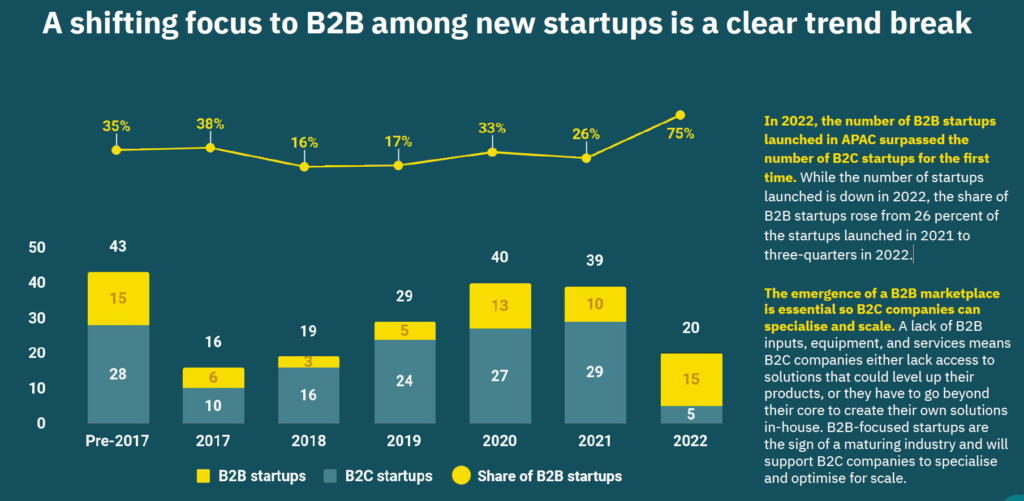
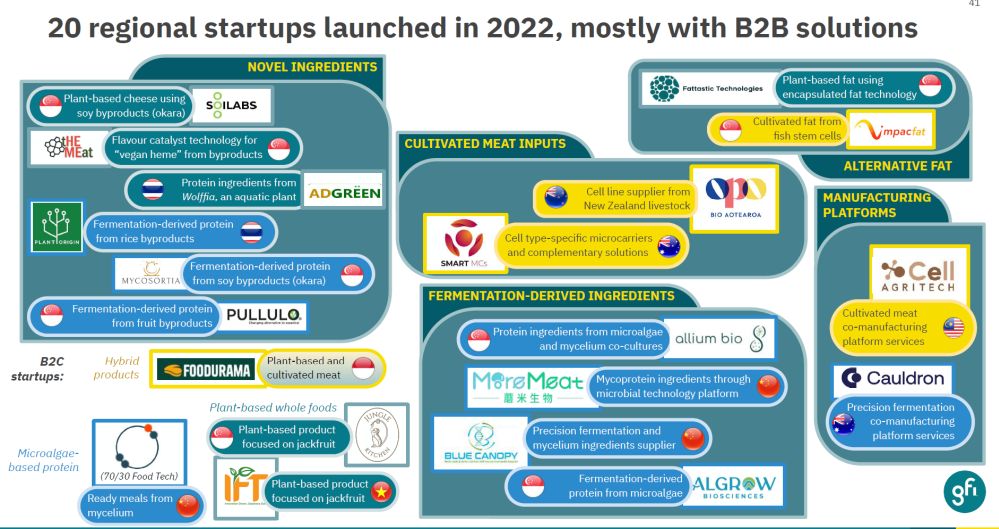
Synthesis Capital: Picks and shovels… investing in enabling tech with a diversified customer base
Stepping back to look at the alt protein space on a global basis, the founders at foodtech investor Synthesis Capital say the smart money is now going upstream into enabling technologies that will help build the whole ecosystem, rather than into new CPG brands, says cofounder and partner Rosie Wardle.
“We did the final close of our fund last June on just over $300m and we’re now the biggest global dedicated foodtech fund. Our strategy is very much upstream with a b2b focus.
“As to how things have changed recently, we’re having to be more cognizant of timelines and exit potential within the timeline of our fund. But where we still see a lot of opportunity is in picks and shovels, so [US-based portfolio co] Triplebar [which develops more efficient biomanufacturing platforms utilizing microbial or animal cells] is a good example of that.”
Triplebar can help cultivated meat companies develop more efficient cell lines, for example, but it is not dedicated to this industry, she notes.
“We wouldn’t invest in a company that’s purely servicing the cultivated meat industry as we don’t really see exit potential for our fund in investing in a media formulation company or a company solely doing cell lines for cultivated meat. What we like about Triplebar is that it’s de-risked because it can service multiple industries and the potential customer base is very broad.”
Culture Biosciences, which is developing a biomanufacturing as a service platform, is another Synthesis Capital portfolio co that can service the alternative protein sector, but is not limited to it, adds cofounder and managing partner Costa Yiannoulis. “Its tech is applicable across industries, so there are multiple enterprise level customers it can target.”
Other areas of focus for Synthesis Capital are lower cost and more sustainable feedstocks for biomanufacturing, from companies utilizing sugary wastewater (Hyfé) to startups deploying synthetic biology to rewire microbes to use alternate feedstocks such as carbon dioxide (Arkeon). And here again, notes Wardle, these span alt proteins, but are not dedicated to them.
“Arkeon is starting with high value applications such as flavors and functional ingredients that can go into other markets such as cosmetics as well as food.”
When “money was effectively free [with low or zero interest rates],” says Yiannoulis, “It was fine to keep scaling and investors would keep funding your losses. That’s not the case anymore. So companies have to think what is the minimum viable scale I need to show that this works from an economic perspective, which means I can then go to project finance or debt investors.”
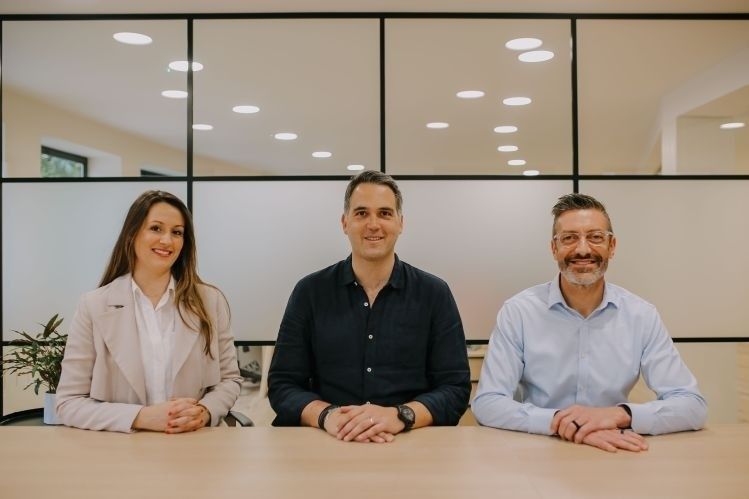
Valuations are down… dramatically
As for valuations, says Wardle, “They’ve come down dramatically, so at the series A stage, we’re seeing anything in the range of $20 to $25 million pre-money valuation to $60 to $70 million, whereas two years ago, that was minimum $100 million pre-money up to some of the crazy ones at $500-600 million.”
She adds: “I think the market correction that’s happened since we started Synthesis Capital is forcing us to be much more focused and cognizant of timelines, what’s feasible within our investment lifetime and which companies can really generate revenue and show a viable path to exit in that timeline.”

